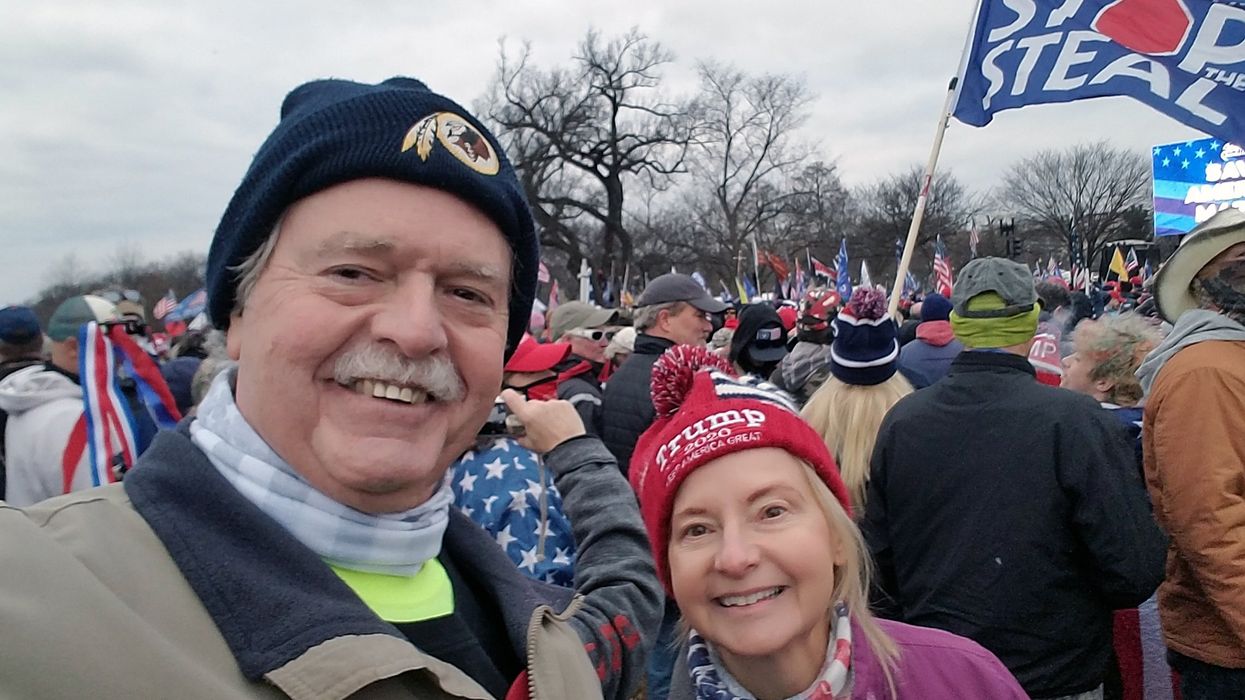 |
| Photo by Thomas Caldwell, used with permission |
Federal judge orders California man's release from prison 'forthwith,' citing the high court opinion on a controversial obstruction-of-Congress charge.
A California U.S. Army veteran serving an 18-month prison sentence for obstructing Congress on Jan. 6, 2021, was ordered released July 12 under the U.S. Supreme Court ruling on the most commonly charged Jan. 6 felony and its maximum 20-year prison term.
Jorge Aaron Riley, 46, of Sacramento, will be released “forthwith” from the federal lockup in Lompoc, California, under an order issued July 12 by U.S. District Judge Amit Mehta in Washington, D.C. Mehta granted Riley's request for bail pending resolution of a motion to vacate the sentence.
Riley’s release is the latest fallout from the Supreme Court’s ruling in the landmark case Fischer v. United States. In a 6-3 opinion on June 28, the high court said the U.S. Department of Justice could only use the felony obstructing charge if it could prove defendants impaired the use of documents, objects, or “other things” used during counting of Electoral College votes at the U.S. Capitol Jan. 6.
Riley was arrested in January 2021 and later indicted on five criminal counts, including felony obstruction and misdemeanors related to alleged trespassing on Capitol grounds. In March 2023, he accepted a plea deal on the one obstructing count under 18 U.S. Code §1512(c)(2).
In the FBI’s original statement of facts in the case, Riley was seen on various videos boasting that he made it into the Capitol. “We broke windows, we went into the door, we pushed our way in, and then we just kept going further and further,” Riley said, according to the FBI.
Despite that statement, Riley was not charged with damage to property or assaulting law enforcement. The FBI quoted Riley’s words extensively from more than 150 posts he made on Facebook on Jan. 6 and in the days after.
“We stopped the steal because they were in there and they weren’t going to stop the steal, so we stopped the steal,” he wrote in one post. “We took our country back. F*** you guys.”
Although many Jan. 6 defendants and their attorneys hailed the Supreme Court ruling as a victory, it appears that the DOJ is not giving up on making the felony charge stick. In numerous court filings since June 28, prosecutors expressed the view that the Supreme Court did not ban them from using §1512(c)(2), a law enacted in 2002 to fight corporate fraud after the Enron accounting scandal.
In the case of Guy Wesley Reffitt, “the court did not reject the application of §1512(c)(2) to January 6 prosecutions,” a DOJ filing said. “Rather, the court explained that the government must establish that the defendant impaired the availability or integrity for use in an official proceeding of records, documents, objects, or other things used in the proceeding — such as witness testimony or intangible information — or attempted to do so.”
In some court filings, the DOJ made what appear to be new allegations. Responding to probationer Tara Stottlemyer’s motion to vacate her §1512(c)(2) conviction, prosecutors said she “intended to stop the certification proceeding and affect the voting and balloting underlying the certification.” --->READ MORE HERE
If you like what you see, please "Like" and/or Follow us on FACEBOOK here, GETTR here, and TWITTER here.

No comments:
Post a Comment